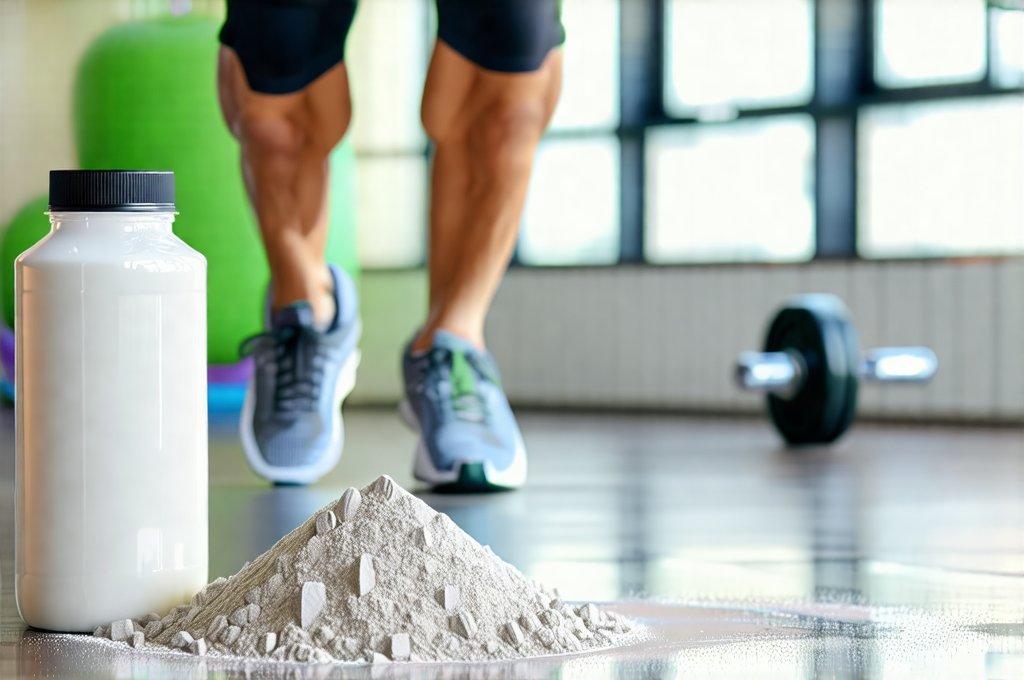Many fitness enthusiasts turn to protein powders as a convenient way to support muscle recovery and growth after workouts. However, what often begins as a pursuit of optimal performance can sometimes end in unexpected discomfort – bloating, gas, stomach cramps, even diarrhea. While the core ingredient—protein itself—is rarely the culprit, it’s increasingly common for individuals to experience gut irritation from protein powders, especially those containing additives intended to enhance flavor, mixability, or digestion. This isn’t necessarily a sign of intolerance to protein; rather, it points towards potential sensitivities to ingredients beyond the basic protein source. Understanding these hidden irritants and how they interact with our digestive system is crucial for maximizing the benefits of supplementation without compromising gut health.
The issue lies not so much in needing extra protein—most people obtain sufficient amounts through a balanced diet—but in the complex formulations many protein powders employ. Manufacturers often add a cocktail of ingredients, ranging from artificial sweeteners and thickeners to digestive enzymes and flavoring agents, all aimed at improving palatability or performance. These additives, while seemingly innocuous, can disrupt the delicate balance of the gut microbiome, leading to inflammation and discomfort. The modern diet already presents many challenges to our digestive systems; layering on potentially irritating ingredients in protein powders only exacerbates these issues, especially for those with pre-existing sensitivities or conditions like irritable bowel syndrome (IBS). Understanding how gut dysbiosis can impact your health is important for overall wellbeing.
Common Culprits: Additives & Their Impact
Protein powders aren’t just about the protein source anymore. Many contain a surprisingly long list of additives designed to improve taste, texture, and digestion. These additions are often where gut issues originate. Artificial sweeteners, such as sucralose, aspartame, and saccharin, are frequently used to reduce sugar content but can negatively impact gut bacteria. Some studies suggest these sweeteners alter the composition of the microbiome, potentially leading to dysbiosis – an imbalance in gut flora that’s linked to various health problems. Thickeners like xanthan gum, guar gum, and carrageenan are added for texture, but they’re poorly digested by many people and can cause bloating and gas as they ferment in the colon. Even seemingly beneficial additions, like digestive enzymes, can backfire if your body doesn’t actually need them or if the enzyme blend isn’t tailored to your specific needs.
Furthermore, artificial flavors and colors are often added for aesthetic appeal but offer no nutritional value and may trigger sensitivities in some individuals. These additives can also contribute to inflammation within the gut lining. Lactose, even in trace amounts in whey protein concentrate, can be problematic for those with lactose intolerance, causing similar symptoms. Finally, soy lecithin, used as an emulsifier, can sometimes lead to digestive issues due to its phytoestrogen content and potential allergenicity. The cumulative effect of these additives, especially when consumed regularly after strenuous exercise (when the gut is already more vulnerable), can be significant. If you’re experiencing bloating, understanding why even small portions might cause discomfort can be helpful.
Understanding Gut Permeability & Inflammation
The gut lining acts as a selective barrier, allowing nutrients to pass into the bloodstream while keeping harmful substances out. When this barrier becomes compromised – a condition known as “leaky gut” or increased intestinal permeability – larger molecules and toxins can enter the bloodstream, triggering an immune response and inflammation throughout the body. Certain additives in protein powders, particularly artificial sweeteners and emulsifiers, have been shown to contribute to increased gut permeability. This is because they can disrupt the tight junctions between cells lining the intestines, weakening the barrier function.
Chronic inflammation within the gut can not only cause digestive discomfort but also impact overall health. It’s linked to a wide range of conditions, including autoimmune diseases, allergies, and mental health issues. Exercise itself can temporarily increase gut permeability due to increased blood flow and stress on the digestive system. Combining intense exercise with protein powders containing irritating additives creates a double whammy effect, further compromising gut integrity. Addressing this requires focusing on both dietary choices and supporting gut health through lifestyle factors like stress management and adequate sleep. It’s also worth considering how imaging can help diagnose underlying issues.
Identifying Your Trigger Foods & Supplementation Strategies
The key to mitigating gut irritation from protein powder isn’t necessarily eliminating it altogether, but rather identifying your individual triggers and choosing products accordingly. Start by reading ingredient labels carefully and opting for powders with minimal additives. Look for options that use natural sweeteners like stevia or monk fruit in moderation, and avoid those containing artificial colors, flavors, and thickeners. Whey protein isolate is generally easier to digest than whey protein concentrate due to its lower lactose content. Plant-based proteins, such as pea, brown rice, or hemp protein, can be good alternatives if you suspect dairy intolerance. Protein sources that are easier to digest can also offer a solution.
Consider a process of elimination: – Start with a basic protein powder: Choose one with minimal ingredients and no artificial additives. – Introduce it gradually: Begin with small servings to assess your tolerance. – Monitor your symptoms: Pay attention to any changes in digestion, bloating, or gas. – If you experience discomfort: Switch to a different protein source or brand. Experimenting with different brands and formulations can help pinpoint which ingredients are causing problems for you. Supplementation with probiotics and prebiotics may also support gut health and reduce inflammation. However, it’s important to choose strains that address your specific needs and consult with a healthcare professional before starting any new supplement regimen. If you suspect gut parasites might be contributing to your symptoms, seeking medical evaluation is important.
Ultimately, the best approach is proactive: prioritizing whole, unprocessed foods as your primary protein source and using protein powder only when necessary, choosing brands carefully based on ingredient lists and personal tolerance levels. Focusing on gut health through diet, lifestyle, and targeted supplementation can help you enjoy the benefits of fitness without sacrificing digestive comfort. You might also find it helpful to explore how gut health can impact other areas of your well-being, such as skin health.


















